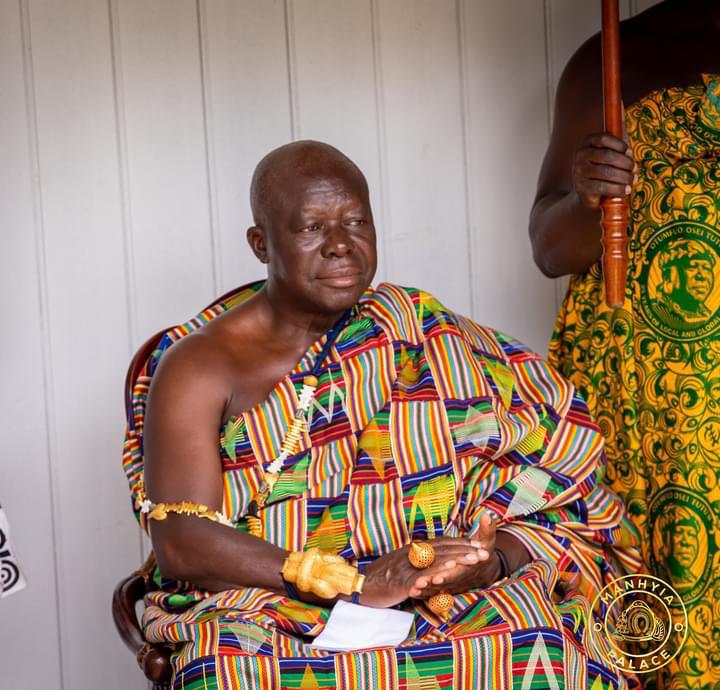The Asantehene, Otumfuo Osei Tutu II, marked the 5th Awukudae of the year at his residence in Henley, a picturesque town along the River Thames.
This significant traditional Akan festival, rooted deeply in the cultural heritage of the Ashanti people, is part of the intricate Adae Festival cycle.
Understanding the Awukudae Festival
Awukudae, meaning “Wednesday ceremony,” is a crucial component of the Adae cycle, which also includes the Akwasidae Festival celebrated on Sundays.
These festivals hold immense cultural and spiritual importance among the Ashanti. The Adae cycle, meticulously fixed from ancient times, is designed to honor the ancestors, seek their blessings, and strengthen the spiritual connection between the past and the present generations.
The Significance of the Ceremony
The Awukudae Festival involves a series of elaborate rituals and customs, each symbolizing respect and reverence for the ancestors. These rituals include offerings of food, drink, and other symbolic items.
The Asantehene, as the spiritual leader and custodian of Ashanti traditions, plays a central role in these ceremonies. His participation ensures the continuity of these ancient practices and reaffirms the cultural identity of the Ashanti people.
Otumfuo’s Official Engagements in the UK
Otumfuo Osei Tutu II’s presence in the United Kingdom is not merely ceremonial. He is on an official visit that includes delivering a highly anticipated address at the British Museum.
This engagement underscores his role not only as a traditional ruler but also as a global cultural ambassador for Ghana and the Ashanti people. His speech is expected to highlight the rich history and cultural heritage of the Ashanti, fostering greater understanding and appreciation of Ghanaian culture on the international stage.
A Fusion of Tradition and Modernity
Celebrating the Awukudae Festival in the United Kingdom exemplifies the fusion of tradition and modernity.
It reflects the dynamic nature of cultural practices that can adapt to new environments while retaining their core essence.
For the Ashanti diaspora in the UK and beyond, such events serve as a vital link to their heritage, allowing them to stay connected to their roots regardless of where they reside.
Sompaonline.com/Nana Yaw Boamah













 Sompaonline.com offers its reading audience with a comprehensive online source for up-to-the-minute news about politics, business, entertainment and other issues in Ghana
Sompaonline.com offers its reading audience with a comprehensive online source for up-to-the-minute news about politics, business, entertainment and other issues in Ghana